こんにちはっ!
nobu☆です\(^o^)/
今回もお料理する時のドイツ語表現を集めてみましたよ。
それでは始めましょう。コチラ ↓ ↓ ↓ の続きです
ドイツ語日常会話㉔ 野菜を炒める
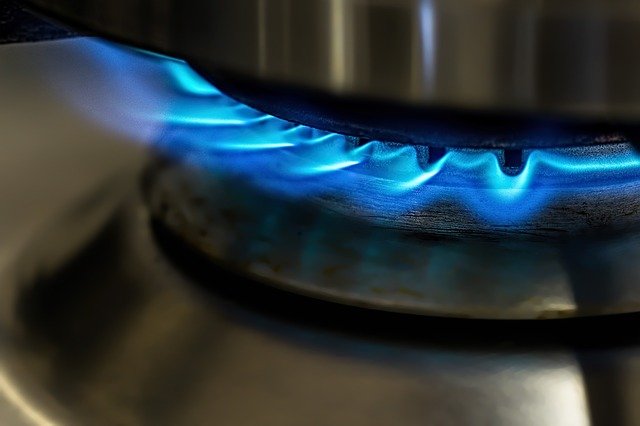
Ich stelle einen Topf auf den Herd.
《イッヒ シュテレ アイネン トプフ アウフ デン ヘーァト》
I put a pot on the stove.
(コンロにお鍋を置きます)
~~~
・der Topf : (英語) pot : 鍋
・der Herd: (英語) stove: コンロ、ストーブ、暖炉
~~~
In den Topf gebe ich Pflanzenöl,
《イン デン トプフ ゲーべ イッヒ プフランツェンエール、》
I put vegetable oil in the pot,
(サラダ油をお鍋に入れて、)
~~~
・das Pflanzenöl : (英語) vegetable oil : サラダ油
~~~
und stelle den Herd auf starke Hitze ein.
《ウント シュテレ デン ヘーァト アウフ シュタルケ ヒッツェ アイン》
and set the stove to high heat.
(強火にします)
~~~
・stelle 〜 ein : 分離動詞 einstellen の一人称単数現在形 :
「〜 (auf )… einstellen」で「〜を…に調節する」
【das Radio leiser (lauter) einstellen】
turn the radio down (up)
ラジオの音を小さく(大きく)する
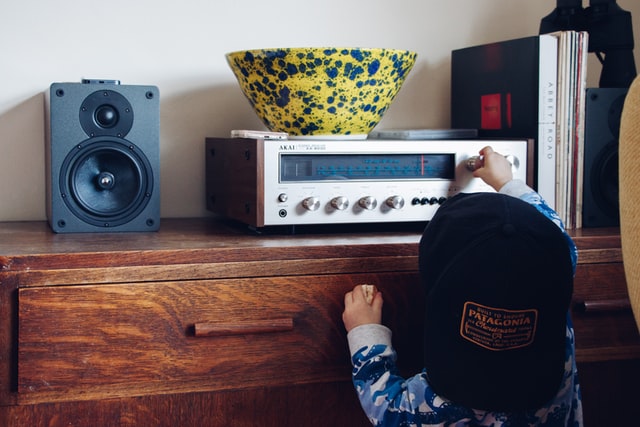
Soll ich das Radio leiser (lauter) einstellen ?
Shall I turn the radio down (up)?
(ラジオの音を小さく(大きく)しましょうか?)
【den Herd auf starke Hitze einstellen】
turn the heat up
コンロの火を強くする
【den Herd auf schwache Hitze einstellen】
turn the heat down
コンロの火を弱くする
Ich habe den Herd auf starke (schwache) Hitze eingestellt.
I turned the heat up (down).
(ボクは火を強く(弱く)した)
~~~
Dann kommen die Zwiebeln dazu.
《ダン コメン ディー ツヴィーベルン ダーツー》
Then add the onions.
(それからタマネギを加えます)
~~~
・kommen 〜 dazu : 分離動詞 dazukommen の三人称複数形 :
【自動詞】付け加わる
Kommt noch etwas dazu?
Anything else?
(他に何かご入用ですか?)…店員さんからの声掛け
~~~
Ich rühre die Zwieberln um und brate leicht glasig an.
《イッヒリューレ ディー ツヴィーベルン ウム
ウント ブラーテ ライヒト グラスィッヒ アン》
I stir and fry the onions until slightly translucent.
(タマネギが少し透けるようになるまで炒めます)
~~~
・rühre 〜 um : 分離動詞 : umrühren の一人称単数現在形 : (英語) stir : 〜をかき混ぜる
・brate 〜 an : 分離動詞 anbraten の一人称単数現在形 : (英語) fry : (軽く)焼く、炒める
~~~
ドイツ語日常会話㉕ 野菜を煮込む
Ich gebe die Karotten dazu und brate sie an,
bis sie etwas weich sind.
《イッヒ ゲーべ ディー カールトッフェルン ダーツー ウント ブラーテ ズィー アン、
ビス ズィー エトヴァス ヴァイヒ ズィント》
I add the carrots and fry them until they are a little soft.
(人参を加えて、少し柔らかくなるまで炒めます)
Ich gebe die Kartoffeln, Kohl und Würste in den Topf.
《イッヒ ゲーべ ディー カールトッフェルン、コール、
ウント ヴュルステ イン デン トプフ》
I put the potatoes, cabbages and sausages into the pot.
(ジャガイモ、キャベツそしてソーセージをお鍋に入れる)
Dann wird Wasser gegossen.
《ダン ヴィルト ヴァッサァ ゲゴッセン》
Then water is poured.
(それから水がお鍋に注がれます→それから水を注ぎます)
~~~
・gegossen : gießen の過去分詞 : (英語) pour : (液体を)注ぐ
(gießenーgoss ーgegossen )
~~~
Ich decke den Topf zu.
《イッヒ デッケ デン トプフ ツー》
I cover the pot.
(お鍋に蓋をする)
~~~
・decke 〜 zu : 分離動詞 zudecken の一人称単数現在形 : (英語) cover : 覆う
~~~
ドイツ語日常会話㉖ 味付けする
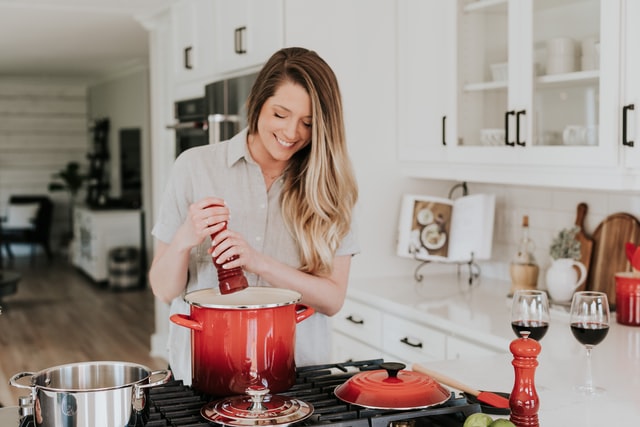
Ich warte, bis das Wasser kocht.
《イッヒ ヴァーテ、ビス ダス ヴァッサァ コッホト》
I wait until the water is boiling.
(お湯が煮立つまで待つ)
Es dauert normalerweise etwa 15 Minuten.
《エス ダウエルト ノマーラヴァイゼ エトヴァ フュンフツェーン ミヌーテン》
It usually takes about 15 minutes.
(およそ15分程かかる)
Wenn das Wasser kocht,
stelle Ich den Herd auf schwache Hitze ein.
《ヴェン ダス ヴァッサァ コッホト、
シュテレ イッヒ デン へーァト アォフ シュヴァッヘ ヒッツェ アイン》
When the water is boiling, I turn the heat down a bit.
(水が煮たったら、少し火を弱めます)
Ich gebe konsommes dazu.
《イッヒ ゲーべ コンソメス ダーツー》
I add consommes.
(コンソメを加える)
Ich köchele 20 bis 30 Minuten.
《イッヒ ケッヘレ ツヴァンツィッヒ ビス ドライツィッヒ ミヌーテン》
I simmer for 20 to 30 minutes.
(20〜30分かけて、とろ火でコトコト煮込む)
~~~
・kochen : (英語) boil : グツグツとお湯が泡立って煮立っている状態
・köchelen : (英語) simmer : 中火で細かな泡がお湯の中に見られる程度の状態
~~~
Manchmal rühre ich sie mit dem Löffel um.
《マンヒマル リューレ イッヒ ズィー ミット デム レッフェル ウム》
Sometimes I stir it with the spoon.
(時々スプーンでかき混ぜる)
Ich nehme den Deckel ab.
《イッヒ ネーメ デン デッケル アップ》
I take the lid off.
(蓋を取る)
~~~
・der Deckel: (英語) lid: 【名詞】蓋(ふた)
・nehme 〜 ab : 分離動詞 abnehmen の一人称単数現在形 : (英語) take off : 取る
(abnehmen ー abnahm ー abgenommen)
Nehm die Wäsche von dem Zeil ab!
Take the laundry off the rope.
(洗濯物をロープから外して)

Ich habe die Brille abgenommen.
I took off my glasses.
(わたしは眼鏡を外した)
~~~
Wenn die Suppe fertig sit,
kann man sie in die Suppenschalen füllen.
《ヴェン ディー ズッペ フェァティッヒ イスト、
カン マン ズィー イン ディー ズッペンシャーレン フューレン》
When the soup is ready, you can pour it into the soup bowls.
(出来上がったら、スープをスープ皿に入れましょう)
あとがき
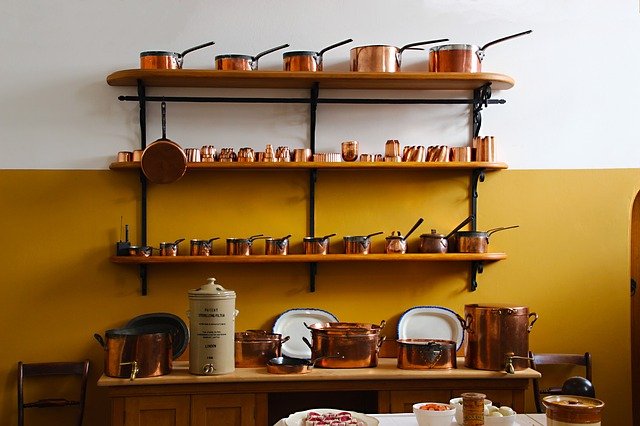
今回は煮込み野菜スープを作ると言う事で、
例文の中に「Topf」や「Deckel」と言った単語が見られましたね^ ^
そこで最後にこんなドイツのことわざをご紹介します。
Jeder Topf findet seinen Deckel.
Every pot will find its lid.他に Every Jack has his Jill. と訳される事も
(どんな鍋にもその蓋がある) (すべてのジャックにはジルがいる)
これは、
「人は誰でもいつか自分のパートナーや大切な人を見つける」
そう言う意味になるそうです。
最後まで読んで頂き有難う御座います。
それではまた(^^)/ お元気で♪
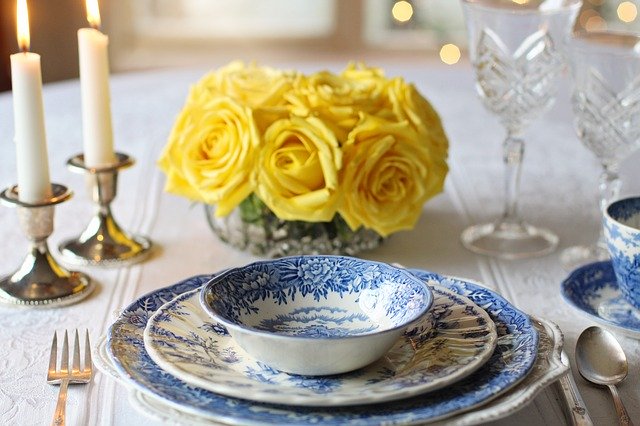



comment